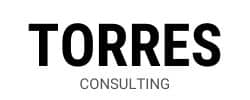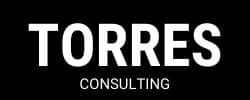Selling: option or duty?
Most businesses that sell directly to customers and have an option to upsell or cross-sell, usually do it purely focusing on the profit: the more I sell, the more I earn.
We’ve already mentioned on another article about the importance of putting the customer at the centre of every transaction, and doing the sale or upsell always making sure that the extra expense represents added value for that guest, improving their experience.
Fine. But what about the internal customer? Where is the added value for the receptionist, the waiter of the reservations agent? Let’s focus on that approach.
As I was saying, if the manager or owner only sees the monetary value of that sale or upsell, the employee will see it as an imposed duty. And there are two points of view there: On one hand, there is the associate’s perception, which feels “coerced” to sell. On the other hand, you have the employer, who considers selling as part of the requirements of that employee. “you do it because go gotta do it”. Wrong argument.
Customer-facing roles
Is selling an associate’s duty? I believe it is. The same as we mentioned (here) that every employee should be a brand ambassador, all client-facing roles should have a commercial spirit. “We are all sellers”, is the motto I heard a GM say earlier this year. And he was right. But companies need to be honest when they are recruiting, and inform their candidates on what is expected from them. Otherwise, they can, if not refuse to sell, at least not try hard enough, or get demotivated, as they are given extra duties that were not part of the original job description and might not be prepared to handle.
I see that very often, especially on hotels that have been open for many years, with receptionists that have been on the same role for 20, 30 years (this tends to happen mainly in Southern Europe, where people tend to stay in such roles for all their life, while in other countries and capitals the turn over is very high and most team members tend not to stay that long on such roles).
How roles have evolved
As I was saying, 20 years ago the duties that a receptionist had to perform were very different to the ones the have to do now. Roles were more compartmentalized: switchboard operator, bellboy, doorman, concierge, cashier,etc… Nowadays, in many hotels the receptionist is expected to be all of the above. And that includes selling, recommending services, plans for the guests during their stay, etc.. And these employees that have seen how their role has evolved so much over the years, can or can not be able to adapt. But this scenario should be an exception, as the role/position has changed that much over the years.
What is expected now when hiring?
If we move forward to the present, and focus on what is required when hiring…are “selling skills” part of the list of requirements of the open positions? I’ve looked online, and neither for Front Office, nor Waiter roles, selling was on the list of requirements.
So, unless the fact that selling is expected comes up during the interview verbally, we must assume then that the job descriptions do not specifically mention it. Therefore, candidates can assume that they might not need to sell if they get the job.
And if that is the case, and that person once hired gets to know that she is expected to generate revenue on a daily basis, she might get frustrated and demotivated because it was not part of the hiring process discussion.
When personality and role don’t match
I see all the time shy people and introverts facing customers. Of course, not all of us are extroverts, but then again not all roles require that approach. But if I’m naturally not an outgoing person; if it’s hard for me to open up and be cheerful with others, then I should not be working facing clients then. And that is fine. There are many jobs in the industry with endless promotion and career possibilities that do not include to be constantly dealing with customers.
When I do individual coaching on property with agents, I’ve seen way too often receptionists crumbling emotionally because they can not handle clients, because it does not go with them to deal with people. That stage should have never been reached. It should have been at hiring time when the HR person should have spotted it, and clarify that the personality trait and the role were not a match.
Otherwise, it’s too late. And that agent starts getting demotivated, gets negative pressure because she’s not performing as expected, see others doing better, is called to performance meetings that is not prepared to handle, etc…
And who ends up paying for it? The external client. The guest. The customer. The level of service will lower, because the person taking care of the client is demotivated, and that will mean a worse experience for that customer.
Always keep in mind that if you speak and the other person can not understand you, it’s your fault for not making sure the message has landed. So, if we have in our companies employees facing customers that do not have the fitting profile, we should ask ourselves if the information on the role requirements was shared correctly during the hiring process.
Maybe it’s time now to review those job offers and role descriptions, so next time you get a candidate, both parties are clear on what is needed and expected.



























Add comment